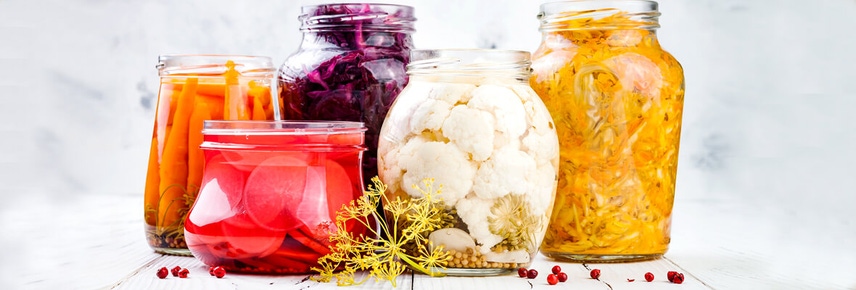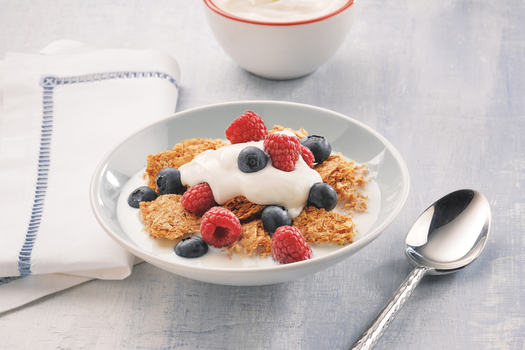
Dealing with a foggy memory? Try these five foods to sharpen your focus.
Forgetting names, brain fog or just feeling blah? We all know that sensation when our brain just doesn’t feel like it is firing on all cylinders. While there’s no simple solution, what you eat may help.
Consuming a diet rich in wholefoods such as fruits, vegetables, and whole grains, can help protect your brain both now and as you age. However, it’s essential to note that there is no one superfood that guarantees a sharp brain over time. That’s why it's important to incorporate a variety of whole grains, vegetables, fruits, and legumes into your diet, while opting for healthy fats instead of saturated fats in butter and cream.
The science shows immediate benefits of eating whole foods include a better mood and helping to combat depression. What you put on your plate can also pay off in the longer term by helping to protect or delay age-related damage and diseases such as Alzheimer’s and dementia. The Mediterranean diet and MIND diet are among the plant-rich diets that have shown significant brain health benefits.
A nutritious diet enhances brain resilience, but when paired with regular exercise, it also boosts performance in tasks related to memory and executive function. Good quality sleep and participating in mentally stimulating activities, like playing an instrument, doing Sudoku, or solving puzzles, are associated with better cognitive function, improved memory, a slower rate of cognitive decline, and a reduced risk of dementia. Additionally, people who enhance their cardio-fitness through activities like swimming show improvements in memory and executive function tasks.
Recent studies have shown an interesting link between gut health and brain function, indicating that the state of our gut microbiota can impact our cognitive health. Keeping your gut microbiota in balance can help reduce inflammation, which is commonly linked to neurodegenerative diseases.
The relationship between the brain and the gut is so important it’s been given its own name: the gut brain axis – a veritable highway of nutrients, proteins and hormones. As we’re discovering more about how the gut and the brain interact, we’re also learning more about the best foods for brain health.
Sanitarium Dietitian Charlotte Moor shares her five favourite foods to help support your brain health and memory.
1. Wholegrain cereals
The glucose from carbohydrates are the brain’s primary energy source. Starting your day with a low-GI wholegrain cereal ensures a gradual release of glucose into your bloodstream. Wholegrains like oats, brown rice, and whole wheat are complex carbohydrates that provide this slow release of glucose, supporting consistent brain function and focus throughout the day, which is essential for memory retention and recall.
Studies have shown eating breakfast can help improve concentration and when it comes to kids, that extends to better behaviour and learning in school. By choosing a cereal that’s high in whole grains you’re also gaining the benefits of all the nutrients grains contain - a wide range of minerals and vitamins such as magnesium, iron, iodine, zinc, B vitamins (folate, thiamine, riboflavin, niacin), vitamin E as well as carbohydrate, protein and fibre. Emerging research shows higher fibre diets may help protect the brain from dementia.
Make your brain and gut happy: try this oven toasted granola.
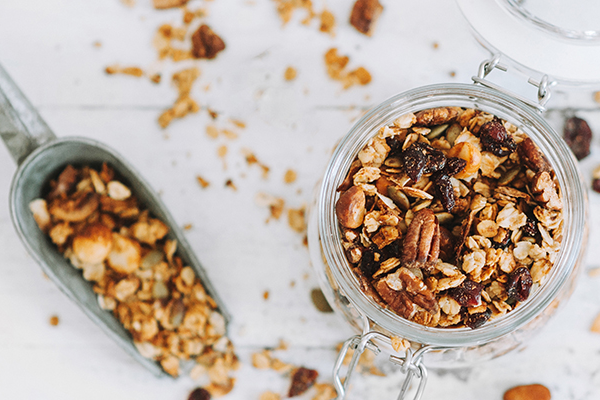
2. Blueberries
These little guys pack a serious nutritional punch. Berries are bursting with antioxidants and phytonutrients, which have been shown to boost cognition and memory in both adults and kids. Blueberries are also high in polyphenols and flavonoids, the natural plant pigments that give berries their vibrant colour. Research shows these flavonoids contain high amounts of antioxidants which help reduce forgetfulness and mild confusion, a common part of ageing.
So, whether you’re after a healthy snack or something to boost your morning smoothie, a handful of berries is a no-brainer.
Make your brain and gut happy: try this blueberry and cashew smoothie.
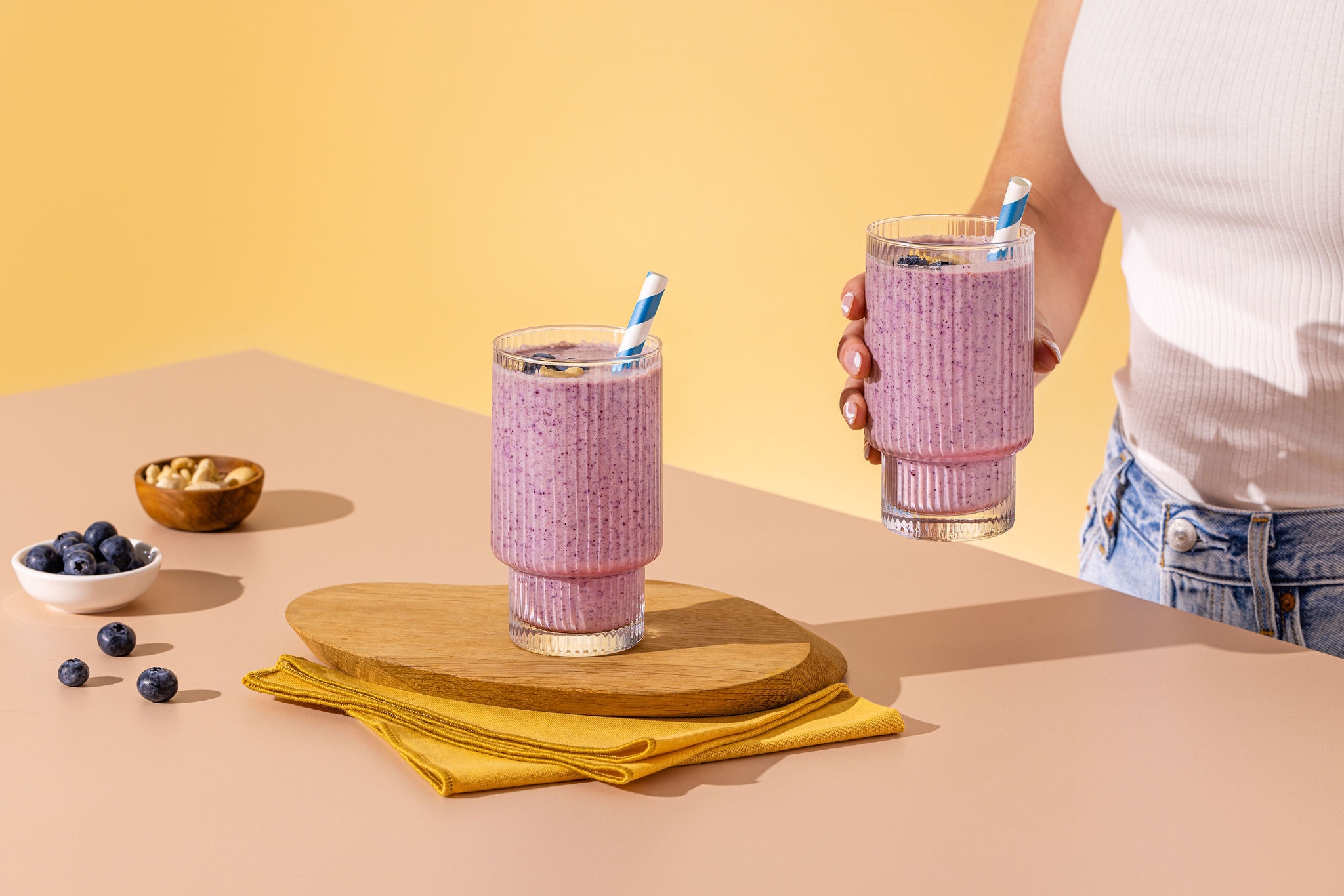
3. Leafy greens
It’s no secret that green leafy veggies, such as spinach and kale, are great for your health. Not only do they help support the immune system and keep an ageing brain sharp, they are also a source of iron and a rich source of folate. Folate is a natural form of vitamin B9 that’s important for healthy red blood cell formation.
Research has shown that sedentary lifestyles coupled with diets rich in added sugars, refined carbohydrates and low in fibre, have a significant impact on gut microbiota, which in turn affects cognitive functions. Eating leafy greens rich in iron and folate can boost memory, and studies show that these greens may positively influence cognitive decline associated with ageing. While the idea of chowing down on a bowlful of greens may not be your cup of tea, you can add them to things like veggie curries and stir-fries for delicious dinners. Or use them to make tasty sides, like this delicious salad using baby spinach.
Make your brain and gut happy: try this tofu and broccoli green curry.
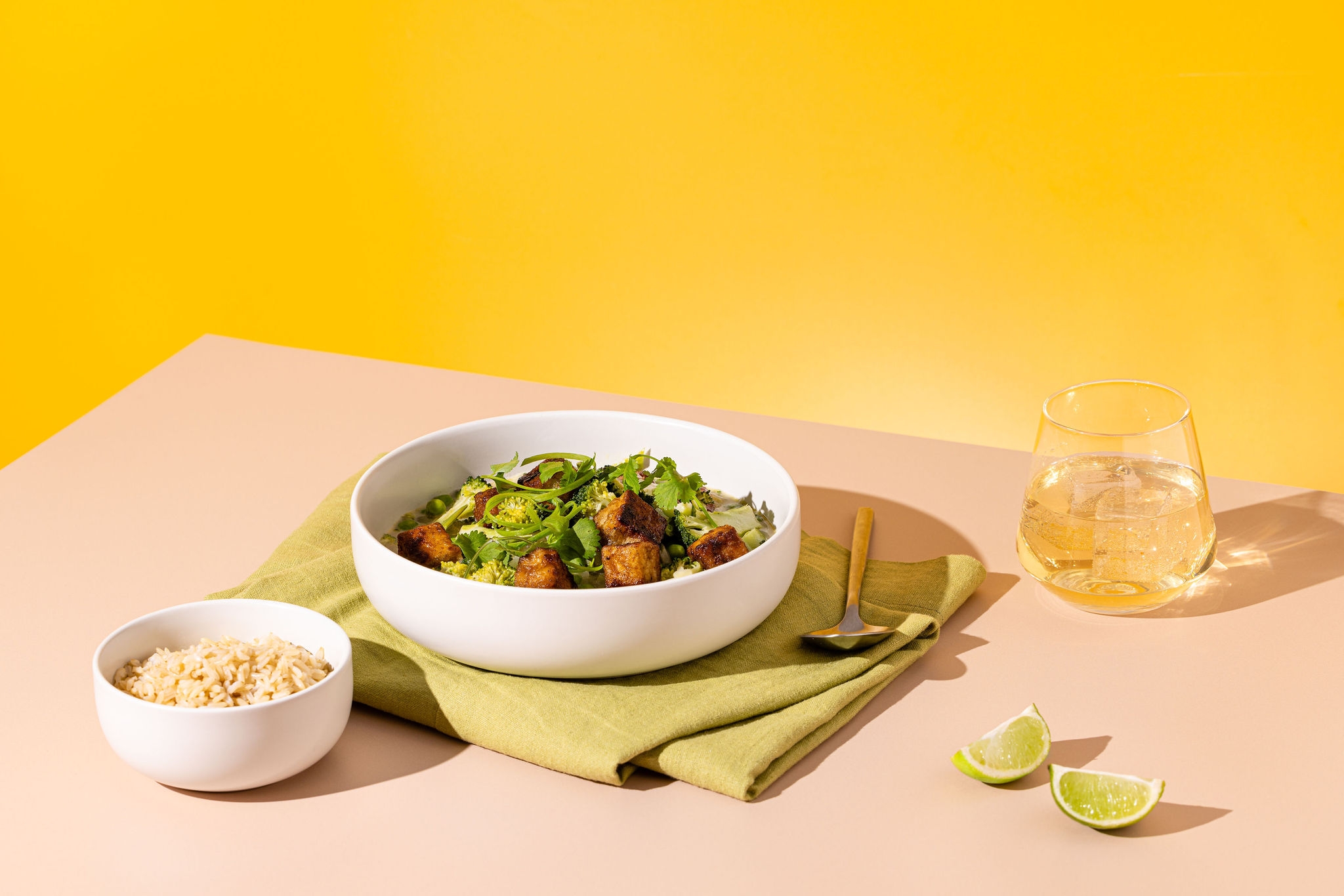
4. Nuts and seeds
Grab a handful of nuts for a great brain boosting snack. Eating nuts has been linked with a reduced risk of depression as well as better cognitive function, learning, memory and mood. The combination of healthy fats (especially omega-3 fats found in walnuts and seeds like chia and flaxseeds) and nutrients with antioxidant and anti-inflammatory properties in nuts may help protect vital functions of the brain and its blood vessels.
Make your brain and tummy happy: snack on a handful of nuts or try them in these delicious bliss balls.
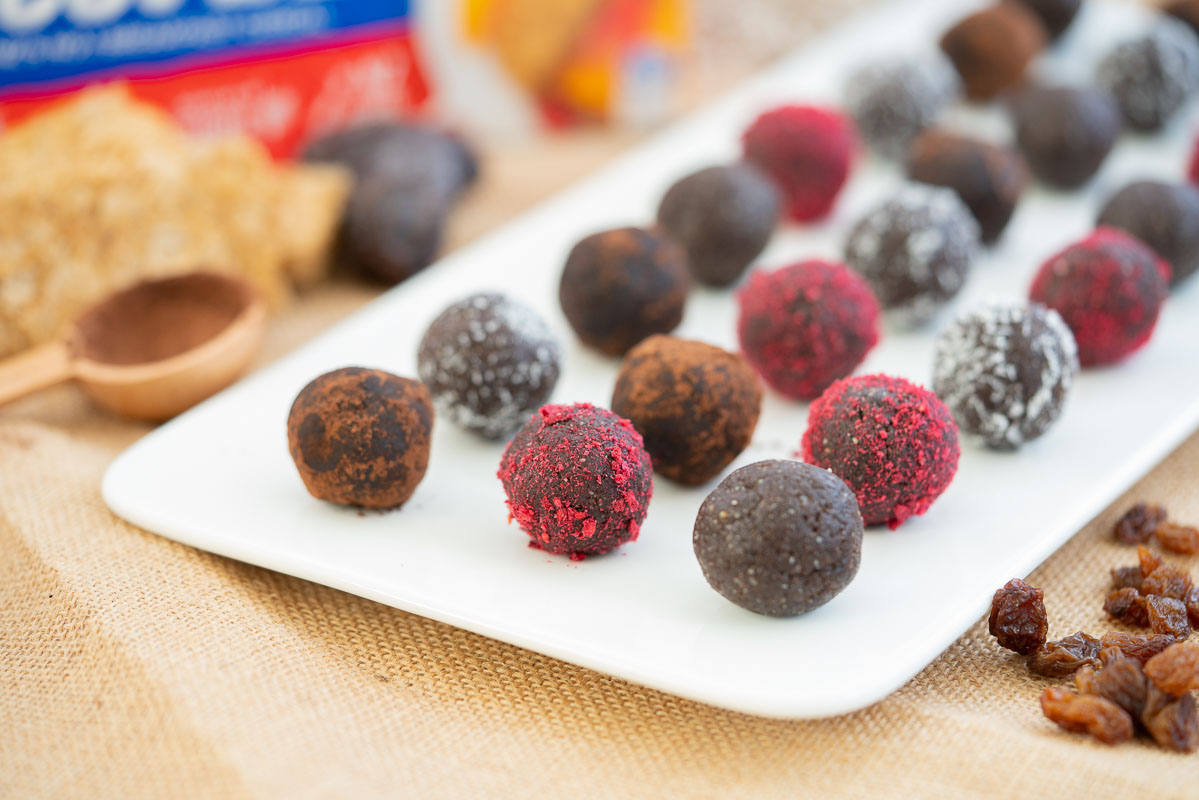
5. Probiotic rich foods
Probiotics are live bacteria, which when consumed in sufficient quantities provide a health benefit. When you eat foods that contain probiotics, like probiotic yoghurt, they make their way down into your gut, where there is literally an ecosystem of bacteria working hard to help your body stay well. In fact, you have more bacterial cells in your gut, than human cells in your whole body!
Different strains are known to have different impacts on health, with studies showing that certain strains of Lactobacillus and Bifidobacterium may help to reduce anxiety and depressive symptoms.
Make your brain and tummy happy: try adding probiotic yoghurt to your favourite breakfast cereal or smoothie.
Fermented foods are created when carbohydrates in food are converted into alcohol or acids by live microorganisms such as bacteria, yeasts and/or moulds. This helps to preserve the food and is used to create foods such as yoghurt and kefir (with live cultures), sourdough, fermented vegetables such as sauerkraut and kimchi, and kombucha.
Eating fermented foods with live bacteria, namely the Lactobacillus and Bifidobacterium strains, may help to improve gut health and reduce anxiety. A review of the research on fermented foods and cognition found promising signs for improved learning, memory, and protecting brain cells.
Make your brain and tummy happy: try this tempeh and vegetable stir fry – tempeh is made from fermented soy beans.
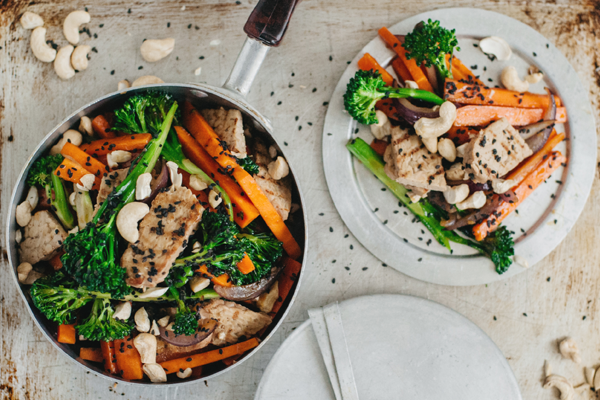

The latest nutrition advice, plus health and wellness tips delivered to your inbox monthly
